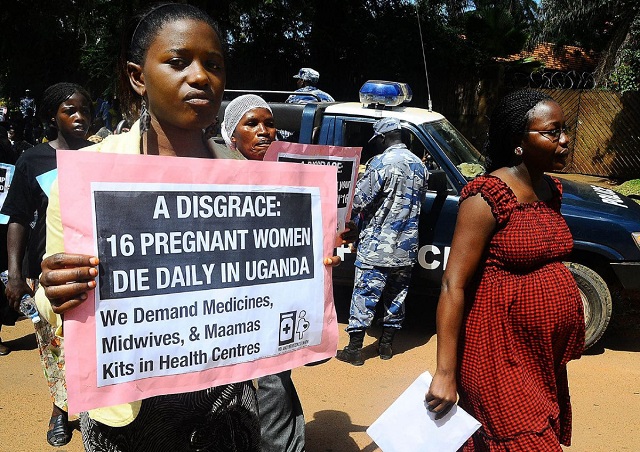
Hoima, Uganda | THE INDEPENDENT | Doctors at the Hoima Regional Referral Hospital have raised a red flag over the escalating cases of maternal deaths being recorded in the Bunyoro sub-region.
Hoima Regional Referral Hospital serves the districts of Hoima, Kikuube, Kagadi, Kibaale, Kakumiro, Masindi, Kiryandongo, Buliisa, Kyankwanzi, Kiboga and Hoima Oil City.
Statistics at the Hoima Regional Referral Hospital indicate that in the 2023/2024 financial year, 83 mothers died while giving birth at the various health facilities in the Bunyoro subregion.
The statistics further revealed that in the 2022/2023 financial year, 103 maternal deaths were recorded in the region.
The medics attribute the deaths to delayed referrals, absenteeism of competent staff on duty, and the lack of ambulances. Maternal deaths due to delayed referrals were recorded in Kikuube at 32%, followed by Hoima District at 11%.
Dr Ayubu Isooba, the Deputy Director of Hoima Regional Referral Hospital says, underfunding of primary healthcare systems, a lack of trained healthcare workers, and weak supply chains for medical products are frustrating efforts to prevent maternal deaths in some health facilities in the region.
He says, there is an urgent need to ensure every woman and girl has access to critical health services before, during and after childbirth so that they can fully exercise their reproductive rights.
Dr. Isooba says it is, therefore very crucial for the government and other Non-Governmental Organisations- NGOs to invest in strengthening the healthcare delivery system, especially in rural areas by making available basic logistics, medical, and laboratory equipment, as well as improving upon maternal health education and consistently organizing capacity building training programs for healthcare workers in the region and the country at large to appropriately fight and eliminate the vice.
He says some of the deaths have been attributed to the continued operations of the Traditional Birth Attendants-TBA who he says are still active in some parts of the Bunyoro region despite their services being abolished by the government.
Dr.John Zimula, an Obstetrician and Gynecologist at Hoima Regional Referral Hospital says, that to combat the escalating maternal deaths in the region, they have formed a group, “The Medical Rebels” that will be tasked to mobilize mothers to deliver from health facilities and also providing them with the required quality health services.
Zimula says, the “medical rebels” will be tasked to sensitize and mobilize mothers from the entire Bunyoro sub-region to ensure that they (mothers) receive antenatal services and also deliver from health facilities to reduce cases of mothers losing lives while giving birth.
He states that, with immediate action, comprehensive investments in primary health care and stronger more resilient health systems, medics can save lives, and improve the health and well-being of expectant mothers in the region.
Dr. Lumu Akugizibwe, a medical officer at Hoima Hospital explains that they have recruited a team of committed medical doctors from the entire Bunyoro sub-region to implement the campaign to ensure that mothers are safe while giving birth.
According to a report released in February 2023 by the United Nations agencies including UNICEF, every two minutes, a woman dies during pregnancy or childbirth.
The report revealed that while pregnancy should be a time of immense hope and a positive experience for all women, it is tragically still a shockingly dangerous experience for millions around the world who lack access to high-quality, respectful health care.
The report, which tracks maternal deaths nationally, regionally and globally from 2000 to 2020, shows there were an estimated 287,000 maternal deaths worldwide in 2020.
This marks only a slight decrease from 309,000 in 2016 when the UN’s Sustainable Development Goals (SDGs) came into effect.
While the report presents some significant progress in reducing maternal deaths between 2000 and 2015, gains largely stalled, or in some cases even reversed, after this point.
*****
URN
 The Independent Uganda: You get the Truth we Pay the Price
The Independent Uganda: You get the Truth we Pay the Price


